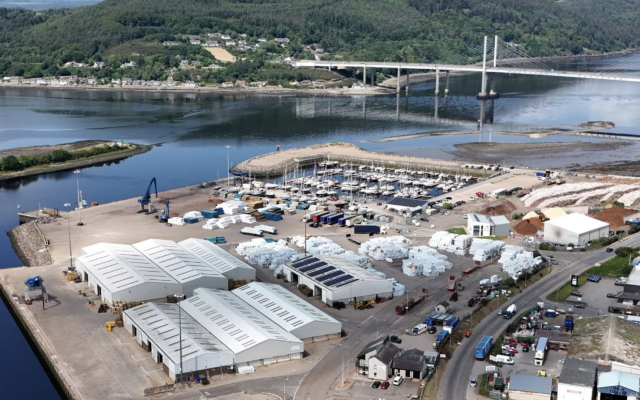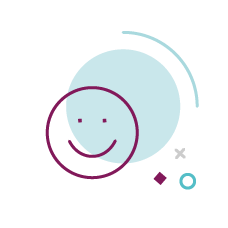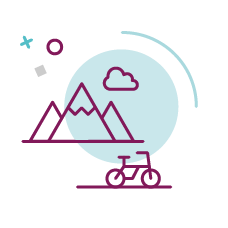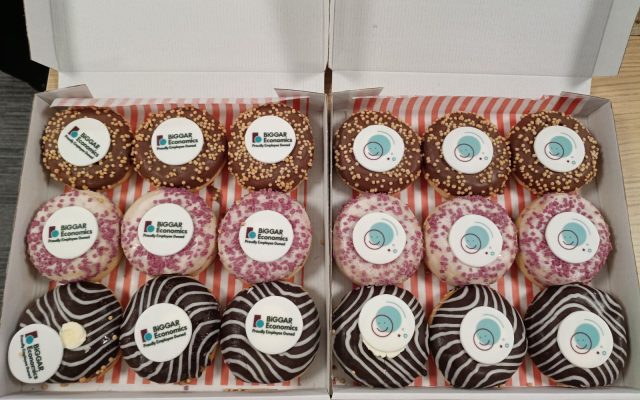
Posted 30.01.26
Economic Impact of the Port of Inverness
BiGGAR Economics was commissioned to assess the current economic impact of the Port of Inverness. We also assessed...
1 minute read
Christopher Boyce joins BiGGAR Economics

I’ve long been passionate about wellbeing and I’m excited to join BiGGAR Economics to help them strengthen their work on the wellbeing economy. Over the years I’ve developed expertise on the wellbeing economy – not just through my academic career researching on the topic and my book A Journey For Happiness, but also through my work directly supporting community mental health.
I first began thinking about wellbeing as an economics’ student. My master’s dissertation was on money and happiness, and that project helped breathe some life back into my early studies. I had always enjoyed economics, yet I’d felt uneasy about the relentless pursuit towards having bigger, better, faster, shinier without greater regard to the wider consequences.
It’s dispiriting that a key underlying assumption in mainstream economics, which has translated too readily to many features of our societies, is that more is always better. What I saw in my early research, was that this wasn’t always the case. I was inspired to explore these issues further, and that led me on to do a PhD. I’ve since worked at various universities, including the University of Warwick, Paris School of Economics, University of Manchester, and the University of Stirling, carrying out research on how the economy influences our wellbeing and publishing extensively in this area.
Put simply, what my research demonstrated is that our lives aren’t always improved through simply having more. Not only are the benefits short-lived, but the “improvements” will have wider consequences than just our immediate pleasure. The consequences can be detrimental to our future selves (e.g., by having personal health consequences or affecting our relationships with others), our societies (e.g., in indirectly or directly harming others), and the wider natural environment (e.g., through depleting life-sustaining natural resources). Sadly, some of these wider effects are irreversible and will put our future prosperity at risk.
We do not adequately value many of the things that are vital for life on this planet. We prioritise profit ahead of people. Within our current economic framework it can be difficult see the value of things unless they have a price tag. More people are beginning to recognise that this needs to change. And even more importantly, that it can change.

After more than a decade as a wellbeing economy academic, I wanted to find ways of having an impact outside of the academic world. This is a key reason why I am now working with BiGGAR Economics. However, my journey from the academic world and into wellbeing economic consultancy was a particularly curious one, and it is worth saying something about that as it has given me a unique perspective on the wellbeing economy.
People, societies, countries that do things differently give me hope that things can change. Throughout my life I’ve come across many people acting for change – they have inspired me to enact change in my own life for greater wellbeing, such as living a life of voluntary simplicity, being generous with my time, and cultivating compassion.
I’ve also been fascinated about many places in the world that have been exploring alternative ways of organising society that bring greater wellbeing. One place that has long captured my attention is the country of Bhutan. Bhutan is world famous for its use of the concept of Gross National Happiness to guide its policy decisions and I had wanted to go there ever since I first heard about it.
However, it didn’t seem quite right to fly to Bhutan. I wanted my journey there to be consistent with the research I had been doing on wellbeing. I wanted to go on a journey in which I could really live my research. And so, I decided to cycle there.

I left Scotland in October 2017, and spent the next 18-months traveling 20,000km cycling to get there. The journey took in many other countries along the way that are also inspiring from a wellbeing perspective – for example Costa Rica, Canada, among many others. I also encountered countless people along the way, many living far differently from how I had been living and I was encouraged to think more deeply about what really matters in life, for all our lives, and our planet.
This journey gave me a renewed passion for putting my research into practice – not only leading to me writing a book about the journey and working more directly in the community (I will also continue my work in community mental health alongside my role at BiGGAR Economics), but also motivating me to reach out to BiGGAR Economics to see what they were doing and whether I could help. With their array of projects on renewable energy and evaluating social impacts it turned out there was a great deal I could get involved with. And so now I’m here and keen to get going, already with several projects on my desk.
It’s my belief that to make the shift to a wellbeing economy it will need work on many corners of society – academic research, discussion at government and policy level, working with organisations to evaluate broader wellbeing impacts, getting involved with community projects, building up from the grassroots, and of course not forgetting the crucial inner work. We can all contribute. In fact, we are all going to have to contribute, and I think that is the key point of the wellbeing economy – it’s about shaping our society in a way that includes everyone and where we all have the opportunity for deeper fulfilment.
“Another world is not only possible, she is on her way. On a quiet day, I can hear her breathing.”
Posted 05.09.22
Our latest news

Posted 30.01.26
Economic Impact of the Port of Inverness
BiGGAR Economics was commissioned to assess the current economic impact of the Port of Inverness. We also assessed...
1 minute read

Posted 12.12.25
New Stadium to Boost Aberdeen Economy
Be it plans for a multi-sports community stadium in Aberdeen, a new home for Manchester United, or the...
1 minute read

Posted 24.11.25
BiGGAR Economics becomes employee-owned
We are delighted to announce that BiGGAR Economics has become an employee-owned company. The shares in BiGGAR Economics...
1 minute read